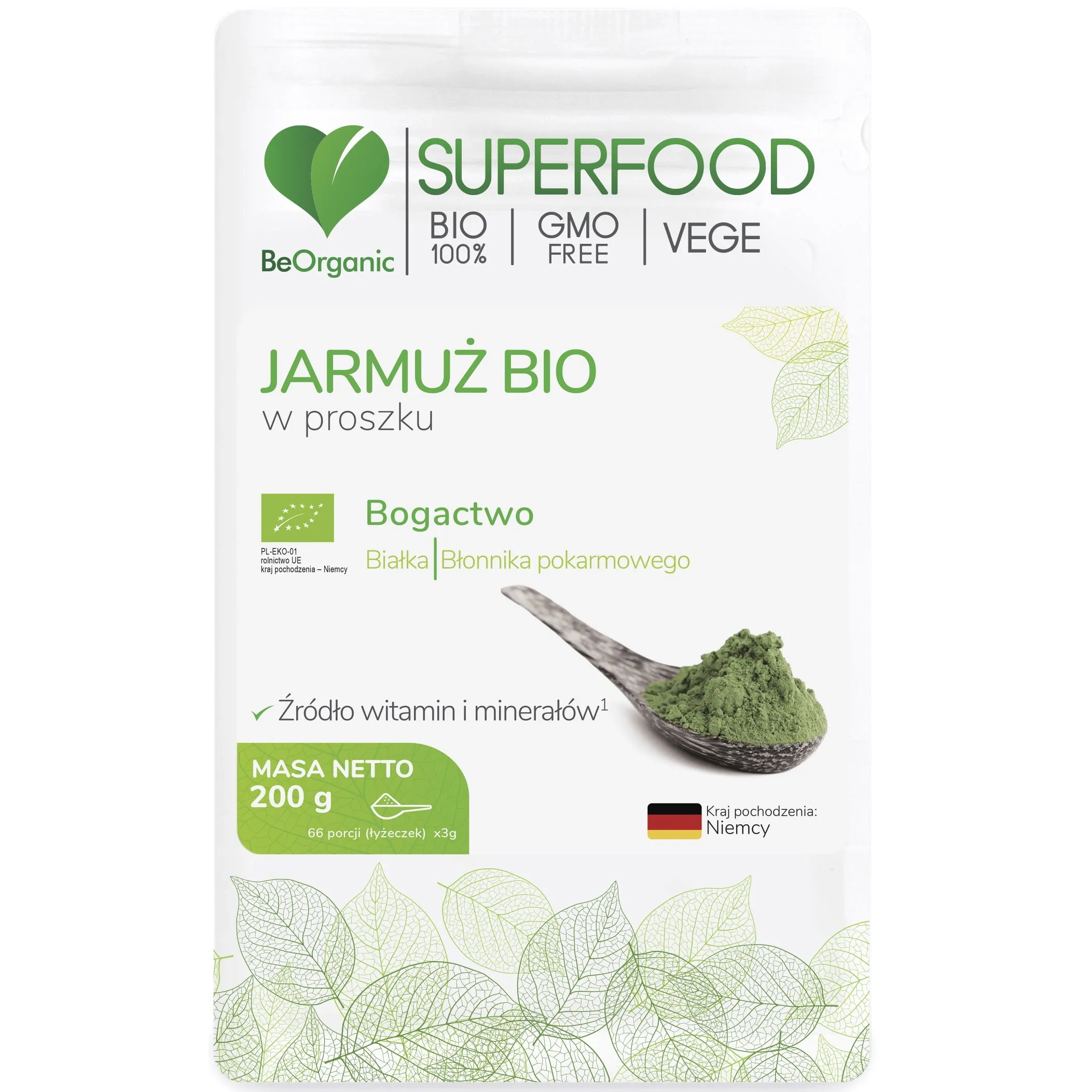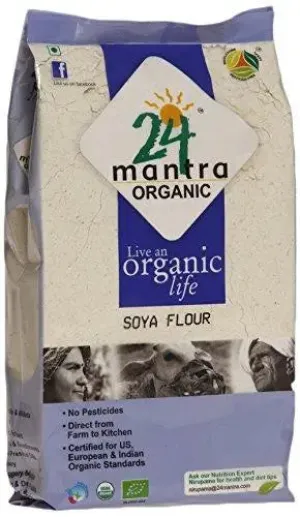Kale is a variety of cabbage appreciated for its rich nutritional value and the content of many vitamins and minerals, such as:
Vitamin C
- contributes to the proper functioning the immune system
- helps in the proper production of collagen to ensure the proper functioning of teeth, blood vessels and skin, gums, cartilage, bones
- contributes to the maintenance of the proper function of the immune system during and after heavy physical exertion
- contributes to the protection of cell components against oxidative stress
- increases iron absorption
- contributes to the proper energy production in metabolic processes
- contributes to the proper functioning of the nervous system
- contributes to the reduction of tiredness and fatigue
- contributes to the proper course of mental activities (psychological)
- helps in the regeneration of the reduced form of vitamin E
Vitamin E helps protect cells against oxidative stress.
Thiamin (Vitamin B1)
- contributes to normal energy-yielding metabolism
- contributes to normal functioning of the nervous system and psychological function
- contributes to the normal function of the heart
Riboflavin (Vitamin B2)
- contributes to normal energy-yielding metabolism
- contributes to normal functioning of the nervous system
- contributes to the maintenance of normal mucous membranes
- contributes to the maintenance of normal red blood cells, skin and vision
- contributes to the normal metabolism of iron
- contributes to the protection of cells from oxidative stress
- contributes to the reduction of tiredness and fatigue
Niacin (Vitamin B3)
- contributes to normal energy-yielding metabolism
- contributes to normal functioning of the nervous system
- contributes to normal psychological function
- contributes to the maintenance of normal mucous membranes
- contributes to the maintenance of normal skin
- contributes to the reduction of tiredness and fatigue
Vitamin B6
- contributes to normal cysteine synthesis
- to normal energy-yielding metabolism
- contributes to normal functioning of the nervous and the immune system
- contributes to normal homocysteine metabolism
- contributes to normal protein and glycogen metabolism
- contributes to normal psychological function
- contributes to normal red blood cell formation
- contributes to the reduction of tiredness and fatigue
- contributes to the regulation of hormonal activity
Folates contribute to the growth of maternal tissues during pregnancy and help in the proper production of blood.
Iron
- contributes to normal cognitive function and energy-yielding metabolism
- contributes to normal formation of red blood cells and haemoglobin
- contributes to normal oxygen transport in the body
- contributes to the normal function of the immune system
- contributes to the reduction of tiredness and fatigue
- has a role in the process of cell division
Potassium
- helps with the proper functioning of muscles
- helps to maintain normal blood pressure
- helps with the proper functioning of the nervous system
Phosphorus
- contributes to normal energy-yielding metabolism
- contributes to normal function of cell membranes
- contributes to the maintenance of normal bones and teeth
Zinc
- contributes to normal DNA synthesis
- contributes to normal acid-base metabolism
- contributes to normal carbohydrate metabolism
- contributes to normal cognitive function
- contributes to normal fertility and reproduction
- contributes to normal macronutrient metabolism
- contributes to normal metabolism of fatty acids
- contributes to normal metabolism of vitamin A
- contributes to normal protein synthesis
- contributes to the maintenance of normal bones, hair, nails and skin
- contributes to the maintenance of normal testosterone levels in the blood
- contributes to the maintenance of normal vision
- contributes to the normal function of the immune system
- contributes to the protection of cells from oxidative stress
- has a role in the process of cell division
Copper
- contributes to maintenance of normal connective tissues
- contributes to normal energy-yielding metabolism
- contributes to normal functioning of the nervous system
- contributes to normal hair and skin pigmentation
- contributes to normal iron transport in the body
- contributes to the normal function of the immune system
- contributes to the protection of cells from oxidative stress
Ingredients: 100% Organic powdered kale.
Preparation method: mix 1 teaspoon (3 g) of the product with 200 ml of water, juice, yogurt or add it as an ingredient in salads, cocktails, desserts.
Suggested daily dose: 1-2 teaspoons. 1 package = 66 servings (teaspoons)
The product is recommended for people focused on a healthy lifestyle, physically active, fitness enthusiasts and athletes. It should not be used as a substitute for a varied diet.
A balanced diet and a healthy lifestyle are the basis for the proper functioning of the body.
|
Nutritional value |
in 100g |
NRV* |
|
Energy value |
1328kJ / 317kcal |
16% |
|
Fat |
6.4 g |
9% |
|
including saturated fatty acids |
0.9 g |
4.5% |
|
Carbohydrates |
17 g |
6.5% |
|
including sugars |
16 g |
18% |
|
Fibre |
30g |
- |
|
Protein |
31 g |
62% |
|
Salt |
0.6 g |
10% |
|
Vitamin E |
10.9 mg |
91% |
|
Vitamin C |
298.6 mg |
373% |
|
Thiamin (Vitamin B1) |
0.53 mg |
48% |
|
Riboflavin (Vitamin B2) |
1.25 mg |
89% |
|
Niacin (Vitamin B3) |
12.69 mg |
79% |
|
Vitamin B6 |
1.42 mg |
101% |
|
Folic acid |
666 µg |
333% |
|
Potassium |
2722 mg |
136% |
|
Calcium |
1354 mg |
169% |
|
Phosphorus |
560 mg |
80% |
|
Magnesium |
198 mg |
53% |
|
Iron |
11.5 mg |
82% |
|
Zinc |
2.1 mg |
21% |
|
Copper |
0.36 mg |
36% |
* NRV - Reference intake value for an average adult.
Package content: 200 g.
Storage conditions: store at room temperature, out of reach of children. Protect against moisture and light.















